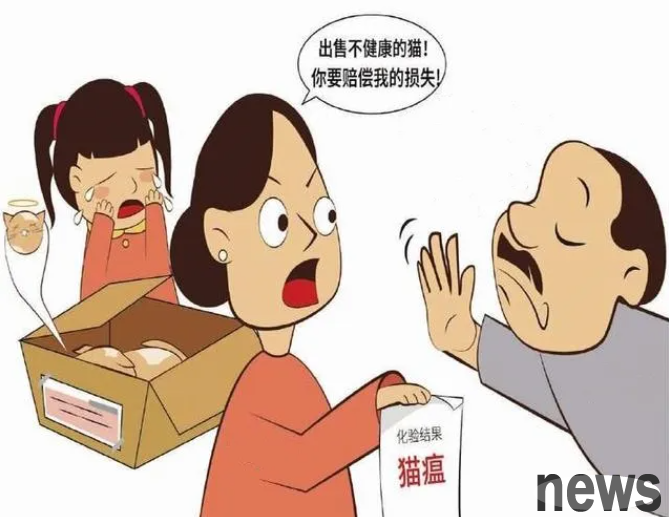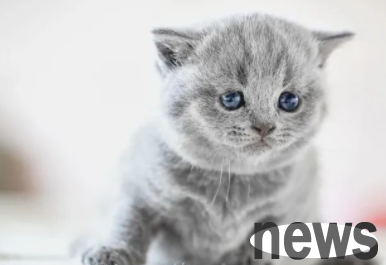I bought a pet cat and died of illness in about a week. The buyer and seller sued the court for disputes over refunds, compensation, etc. How should the relevant legal liability be determined? Case summary On August 16, 2023, Yang purchased a cat of...
I bought a pet cat and died of illness in about a week. The buyer and seller sued the court for disputes over refunds, compensation, etc. How should the relevant legal liability be determined?

Case summary
On August 16, 2023, Yang purchased a cat of silver-grade breed for 500 yuan from a certain aquatic flower store (hereinafter referred to as a store) (it was found that the cat has not been inspected and quarantined). The two parties verbally agreed that if the cat has problems such as disease, it can be refunded or returned. On August 20, Yang sent the cat to a pet hospital for examination and was diagnosed with cat plague. On the afternoon of the same day, Yang went to a store to inform him of the above situation and requested a return and exchange. The operator of a certain store was not on site, but agreed to negotiate the matter in the evening. The two parties did not meet or negotiate that night. On August 21, 2023, Yang continued to treat the cat and asked a store to bear the relevant expenses. The store did not agree to bear the burden, so Yang continued to treat it on his own and spent a total of 2,000 yuan in medical expenses. On August 23, 2023, the cat died after ineffective treatment. Later, the two parties had a dispute over refunds and compensation matters. Yang sued a store in court, requesting the termination of the sales contract, and the defendant compensated the cat purchase and medical expenses of the cat, totaling 2,500 yuan and interest, and claimed that the defendant was fraudulent and asked the defendant to pay a punitive compensation of 1,500 yuan for the three times the cat purchase price. A shop argued that the cat was healthy before buying it, and it had nothing to do with it after getting sick. After getting sick, he contacted the plaintiff and was rejected for a refund, and the medical expenses were too high, so he only agreed to refund the 500 yuan of the cat purchase.
The focus of the dispute in the court hearing
The focus of this case is: Should the defendant bear the relevant liability for compensation? After trial, the court held that this case was a dispute over the sale contract. The intention of the oral sales contract involved in the case is true, does not violate the mandatory validity provisions of laws and regulations, and is legal and valid. Based on the facts of the case found, Yang claimed that a certain store had not inspected and quarantined the cat before it was sold, which violated relevant laws and regulations, and this court confirmed it. Yang claimed that the cat provided by a certain store was sick when sold and that the store breached the contract. The store refused to recognize it, but did not provide evidence. In view of the fact that the cat involved has not been inspected and quarantined, it should be determined according to law that there was a problem with the cat involved in the case when it was sold, that is, a store breached the contract. According to this, Yang requested to terminate the contract and refund and compensate for losses, which comply with the law and this court supports it. However, the medical expenses required by Yang were not entirely caused by a store’s breach of contract. According to the contract agreement between the two parties, if there is any problem with the cat, you can return and exchange it, and accordingly, the breach of contract loss can be limited to the cat's price range. When Yang asked for a return and exchange, a store did not reply in time. Yang immediately sent the cat to the hospital and spent a medical expenses that were far greater than the cat's own price, violating the agreement between the two parties. Yang was also at fault for the occurrence of the loss and should bear the corresponding losses. Based on this, our court determines, at its discretion, that both parties shall bear 50% of the medical expenses. Yang claimed that a store had committed fraud and based on this, he asked a store to bear the compensation liability for three times the payment for the goods. A store did not recognize it. Yang did not provide valid evidence to prove it. The factual basis was insufficient, and this court did not support it. In the end, the court ruled that a store would return 500 yuan to Yang's cat purchase payment, compensate 1,000 yuan for cat treatment expenses, and compensate for the interest loss of the above funds (calculated based on the one-year loan market quotation rate for the same period from December 7, 2023 to the actual payment date), and dismissed Yang's other lawsuit requests. After the judgment was made, both parties accepted the judgment and stopped the lawsuit, and the judgment has now taken effect.
Judge said
In life, it is not uncommon for consumers to buy cats and dogs at street stalls, markets, flower and bird markets, etc., but in some cases, the cats and dogs they sell have not been inspected and quarantined, and their health is not fully guaranteed. They die of illness within a few days after buying them home. Who should bear the relevant responsibilities and how to divide them? In this case, as a dispute over the sale contract, the responsibility should be divided according to the contract agreement and the fault in accordance with the law. Merchants who sell live animals need to obtain corresponding business qualifications and provide corresponding animal quarantine qualification certificates in accordance with the Animal Epidemic Prevention Law of the People's Republic of China, otherwise they should bear corresponding responsibilities. The sale of healthy pets is the fundamental contractual obligation of the merchant. If there is a problem with the pet involved in the case when selling, the merchant shall bear the liability for breach of contract, refund the purchase payment, and compensate the consumers for reasonable losses. Consumers blindly purchase without providing certificates of animal quarantine, and their subsequent actions lead to the expansion of breach of contract losses, and they also have certain faults and should bear corresponding losses. As for whether it constitutes fraud, it depends on whether it is satisfied: the merchant has intention of fraud; the merchant informs the consumer of false situations or conceals the real situation; the consumer makes an expression of intention based on misunderstandings. If the merchant knows that the pet is ill and still conceals the sale, causing the pet to die of illness, the consumer may ask the merchant to refund the price and pay three times the compensation in accordance with the provisions of the Consumer Rights Protection Law.